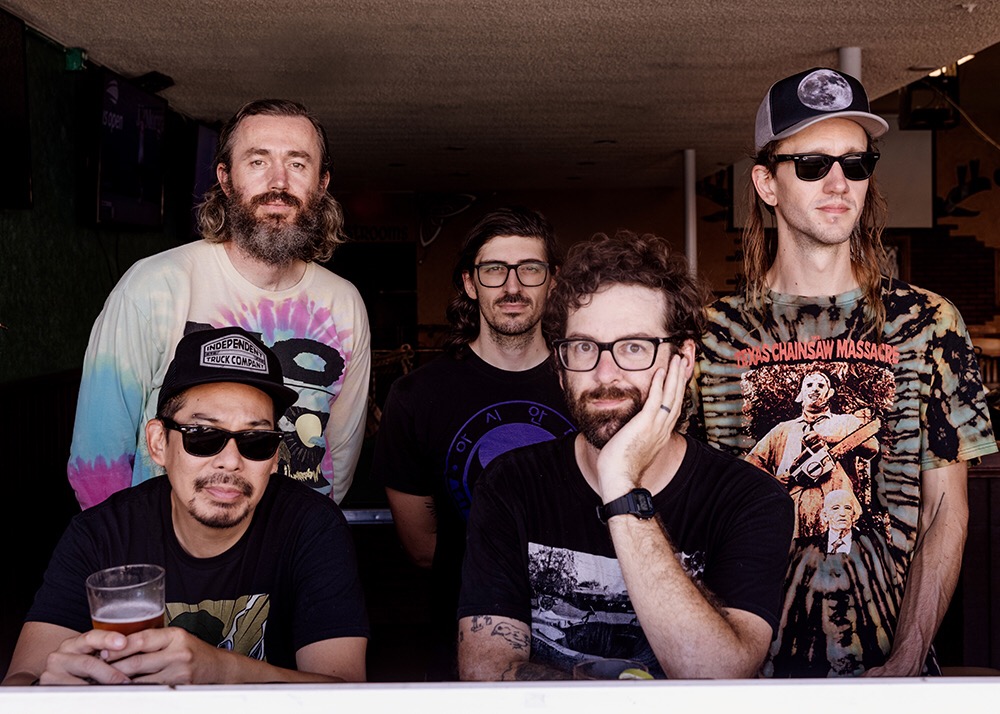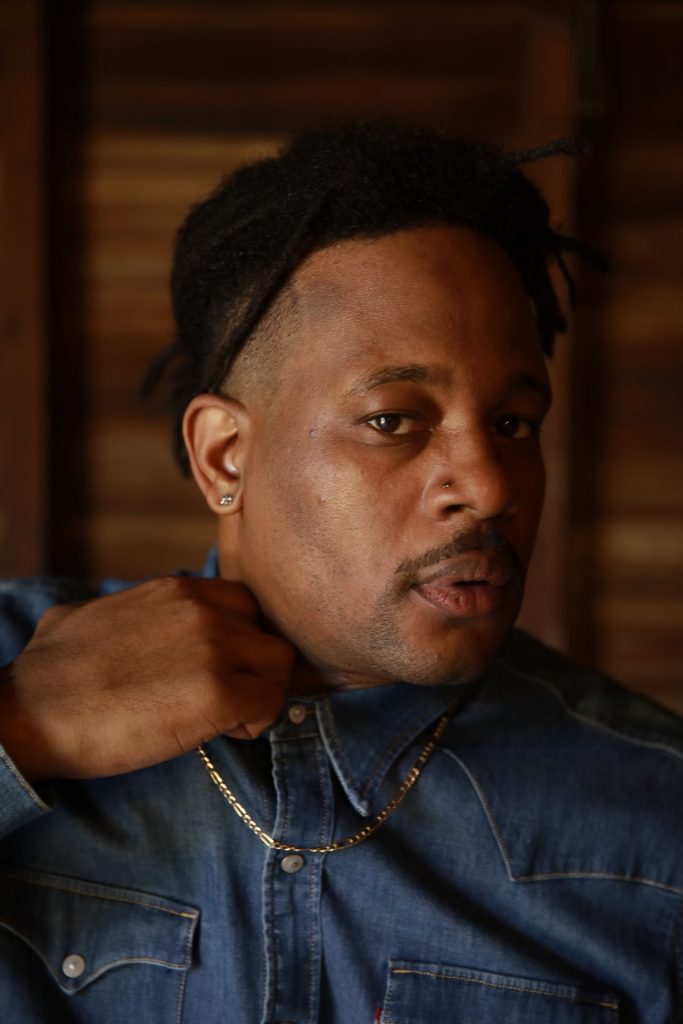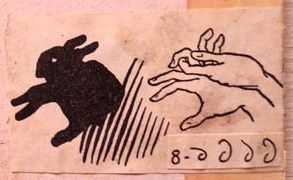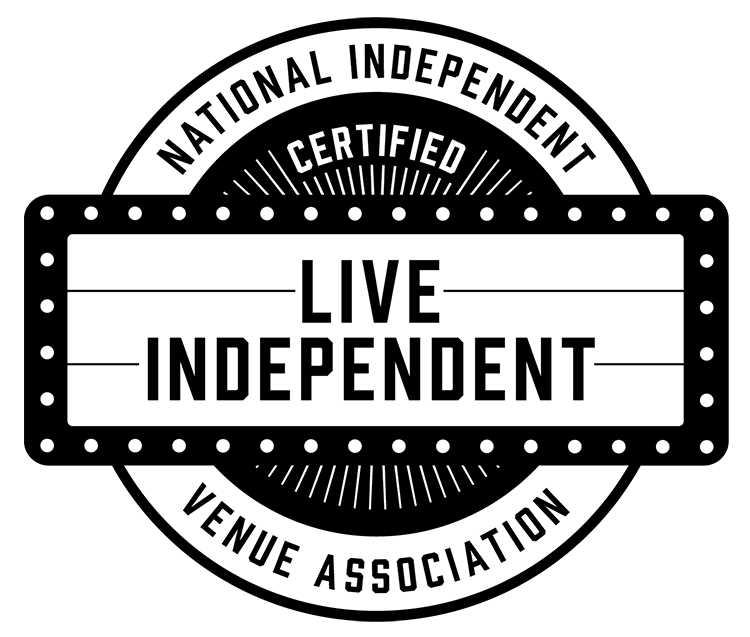AJJ
Wednesday, July 19th, 2023


AJJ frontman Sean Bonnette can summarize the band’s new album, Good Luck Everybody, in a single sentence: “Sonically, it’s our least punk record, and lyrically, it’s our most punk record.”
And indeed, Good Luck Everybody (January 17, 2020), the Arizona band’s seventh album, stands out in their already diverse catalog. While still rooted in the folk-punk sound AJJ has become known for, the album is unafraid to delve into new territories that test the limits of what the band is capable of.
“I think it explores some of the weirder sides of AJJ, the more experimental leanings that we’ve had in the past,” says bassist Ben Gallaty. Good Luck Everybody draws from a wealth of sonic inspirations, from Laurel Canyon folk-rock of the 60s and 70s to avant garde artists like Suicide, as well as some orchestral pop. There is even a piano ballad, the tragic “No Justice, No Peace, No Hope.”
Lyrically, Good Luck Everybody is a change of pace from the idiosyncratic songwriting style Bonnette has honed over more than 15 years fronting AJJ. It still features his wonderfully weird turns of phrase and oddball word pairings, but this time, his thematic lens is more directly focused on the inescapable atrocities of the world around him. Longtime fans will recognize the album’s social commentary as a return to their 2011 release, Knife Man, but this time it’s fueled by a more radical urgency.
“I usually try for a timeless effect in songwriting, so that you can hear a song and generally not think about the context under which it was written,” says Bonnette. “But for this one, I was trying to write, and all the bad political shit just kept invading my brain and preventing me from writing that way. So I decided to fully embrace it and exorcise that demon.”
Much like Woody Guthrie and Phil Ochs pulled their songs straight from newspaper headlines, Good Luck Everybody feels like a long scroll through social media feeds on a particularly volatile day.
The song “Mega Guillotine 2020,” for example, came directly from Twitter. It was influenced by Twitter funnyperson @leyawn’s popular tweet depicting a mockup of a French Revolution-style guillotine with one blade and enough headrests for 15 Congress members. Bonnette says the idea inspired him to press record and start playing, and when he did, the entire song came out of his brain fully formed. The final version also features backing vocals by Kimya Dawson.
“There’s something that comes along with scrolling through your phone on Twitter or Instagram and seeing a puppy, and then a joke from a comedian, and then a young black person being shot by police, and then another puppy, and then your friends announcing a tour, and then children in cages,” says Bonnette. “There’s something in that that fucks your brain up. I don’t know if it’s made me more of a passionate arguer or just made me confused and numb.”
On “Normalization Blues,” Bonnette laments what this never ending deluge of atrocities has done to our humanity: “I can feel my brain a’changin’, acclimating to the madness / I can feel my outrage shift into a dull, despondent sadness / I can feel a crust growing over my eyes like a falcon hood / I’ve got the normalization blues, this isn’t normal, this isn’t good.”
Later, on “Psychic Warfare,” Bonnette takes out some aggression on the man at the root of it all, albeit through his trademark polite aggression: “For all the pussies you grab and the children you lock up in prison, for all the rights you roll back and your constant stream of racism / For all the poison you drip in my ear, for all your ugly American fear, I wrote you this beautiful song called ‘Psychic Warfare.’”
After years of partnering with Asian Man Records and SideOneDummy Records, AJJ is releasing Good Luck Everybody on their own, via their new label AJJ unlimited LTD, with Specialist Subject Records handling the European release. Bonnette and Gallaty also produced the record themselves and, in addition to their usual cast of collaborators (Preston Bryant, Dylan Cook, Mark Glick, Owen Evans), it features guest appearances from Thor Harris, Jeff Rosenstock, and Laura Stevenson.
“One thing that makes me rather giddy is that without a label or a producer, our listeners will have no one to blame besides us for the way our sound has changed,” laughs Bonnette.
For all of its dark leanings and its pessimistic reflections on modern culture, AJJ hopes that fans will ultimately come out of the album in a hopeful place. By its final track, “A Big Day for Grimley,” it feels like AJJ is holding the listener’s hand, staring at the looming apocalypse ahead, and whispering a message into their ear: Good luck, everybody.
-Dan Ozzi

Open Mike Eagle
Open Mike Eagle found comedy in contemporary American horrors on albums like 2014’s Dark Comedy and catharsis in exposing his past on 2020’s Anime, Trauma, and Divorce. Now, the incisive, hilarious, and idiosyncratic purveyor of art rap praised by The New York Times, Pitchfork, and The New Yorker manipulates time like Dr. Strange on his new album, Component System with the Auto Reverse.
Eagle’s eighth solo LP, CSWTAR is grounded in our dystopian present but structured with the magical randomness of cassette mixtapes he made recording college rap radio shows in the late ’90s. It was an era of supreme braggadocio and countless lyrical styles, the lines between boasts offering insight into Black American neighborhoods. Eagle made CSWTAR in this spirit. Unstuck in time, he spits his sharpest stream-of-consciousness darts while watching his younger self bop to the music that informed them. No two songs traverse the same ground, but Eagle splices in actual commercials and radio interviews from his old mixtapes to connect the dots, his keen sociopolitical analysis and obscure pop culture allusions serving as temporal poles. In the same breath, he airs grievances about current police corruption and alludes to long-retired Chicago Bulls players. Every
anachronism provides a new perspective on today.
Keeping with the purposeful surprise and structure, CSWTAR is scored by crashing doom-filled hard rock flips from Madlib, Diamond D’s thumping jazz-inflected boom-bap, twisted cartoon-sampled suites via Quelle Chris, and more progressive production. Eagle turns these disparate sounds into a cohesive whole, equally at home rhyming on minimalist electronic soundscapes and parodying an animated stereo store proprietor over thundering drums and grinding guitar. A master of his vocal range, he effortlessly moves in and out of conversational and intricate technical delivery, inflecting with abandon and assurance before pivoting to half-sung hooks. There are more time-bending spells in Eagle’s grimoire, but he’s never shown listeners so many so effectively. Though Eagle has worked in podcasts, comedy, and TV, he is first a member of the loosely-affiliated independent rap scene that includes the rappers featured on CSWTAR: Armand Hammer, R.A.P Ferreira, Aesop Rock, Serengeti, Diamond D, Video Dave, and Still Rift. Part solo album and spiritual mixtape, part green room cipher, and part showcase for Eagle’s Auto Reverse Records, CSWTAR recontextualizes his place among his peers. With every original metaphor and stylistic flourish, he asserts his place in the pantheon of great rappers from his hometown of Chicago (“79th
and Stony Island”) and among the avant-garde heavyweights in his adopted home of Los Angeles (“Crenshaw and Homeland”).
CSWTAR is also a response to the rest of Eagle’s catalog. He forsakes much of the whimsy and comedy of many previous albums for unflinching and unironic directness. A testament to the determination necessary to thrive in indie rap (“I’ll Fight You”) plays before his touching tribute to the late MF DOOM (“For DOOM”). He articulates the stir-crazed mania and malaise of the pandemic in “Peak Lockdown Raps,” while “I Retired Then I Changed My Mind” is a calculated analysis of career missteps and a lament for his canceled Comedy Central show, The New Negroes. As that wound closes, Eagle is recording albums like CSWTAR, producing acclaimed podcasts, and focusing on his next trick: survival.

Foot Ox
Foot ox is an experimental and somewhat psychedelic folk band from Portland, Or. Originally formed in Tempe, AZ in 2007 . The music and lyrics inspired by dreams, deals with love, death, adventure, heartbreak and fear with indirect and abstract imagery. Unusual but subtle orchestration gives an impression of Intimacy even playing in front of large crowds. The sound swings from driving, upbeat full band, complex and rhythmic, to sparse, quiet emotional moments of vulnerability.







